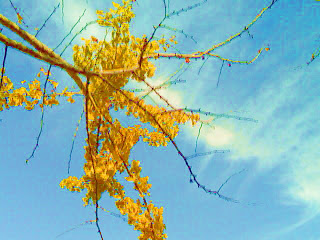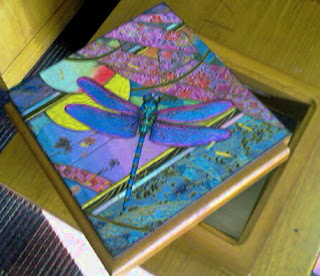These days a treehouse stands empty. It calls to children who clutch handhelds as fingers gain calluses from overusing the keys.
Today’s youth sing advertising jingles but cannot name the trees, plants or flowers in their own yards. Many have not experienced the wonder trees provide.
Becoming Marco Polo
Outside her childhood bedroom,
a jacaranda tree rubbed the porch railing
in squeals that led curiosity like a piper.
She sneaked out the window to climb it.
Thighs squeezed the bark; arms in hug.
She needed to touch the V formed by branches
near the ground. If only she could reach it,
then swing to the grass where adventures waited.
Night warbling continued from the tree. Muggens,
the cat, dug claws in the wood and scampered
the highway at will. Her tail spiraled in the breeze.
Finch chittering rose from limbs. Even they
flew in and out of branches or captured ants
on this Silk Road. A hummingbird made its nest
higher than her reach. When her father called,
she looked out the window, stuck in the middle.
Again she tried, clutched with her fingers
to find security in the roughness. Blood mingled
with gray bark in failed attempts to settle into the V.
Courage grew in welts on arms and legs.
In spring, an explosion of lavender blossoms
flew a fragrance of musk into the air. She took a breath
and tried once more. One shoe felt the wedge.
Another stretch and both feet arrived.
She balanced and looked upward into an applause
of leaves. She jumped from the V
to explore the world and back before dinner.
- Penny Wilkes
Creative Write: Bring an experience with a tree into a poem. If you have not had an adventure, search for a tree and discover our similarities.









